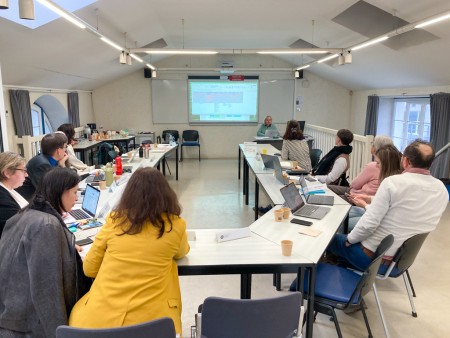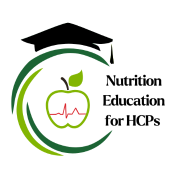Improving Nutrition Training for Healthcare Professionals
Teacher-researchers from the University of Angers are involved in a European project aimed at improving nutrition training for doctors, pharmacists, physiotherapists and nurses.

The partners meet regularly to exchange ideas (here, in Angers, at the launch meeting in January 2025).
Nutrition is one of the cornerstones of health prevention. “And yet, HCPs (healthcare professionals) offer little to no dietary advice to their patients, sometimes even giving counterproductive guidance. This may be due to a lack of time or a perceived lack of resources,” explains Anne-Marie Leray-Richomme, Emeritus Senior Lecturer in Pharmacognosy, who has developed nutrition teaching units at the Faculty of Health at the University of Angers. “Patients must make appointments with specialists, such as endocrinologist-nutritionists, or be supported by dietitians, but in primary care, very little is actually being done.”
This issue isn’t unique to France. The Erasmus+ project Nutrition Education for Health Care Professionals was launched in Ireland. Led by a team at the Atlantic Technological University, the project brings together five partners: three other members of the EU-Green alliance — namely, the University of Angers in France, the University of Gävle in Sweden, and the University of Oradea in Romania — alongside Uzhhorod National University in Ukraine. In total, around fifteen researchers are involved, including five from Angers currently active in the project, from the Sonas, Mint, and Mitovasc research units (Anne-Marie Leray-Richomme, Jacques-Olivier Fortrat, Samuel Legeay, Camille Savary, and Séverine Derbré).
Towards Online Training
The first phase of this project, which began in September 2024 and will run until February 2027, involves conducting an assessment across the participating countries. It will examine how nutrition is currently addressed in undergraduate curricula (the first three years) for students in medicine, pharmacy, physiotherapy, and nursing. An initial round of interviews with healthcare professionals has already taken place, highlighting some of the challenges they face when advising patients on nutrition.

The next step will be to develop a guide for educators. “We’re not trying to reinvent the wheel,” says Anne-Marie Leray-Richomme. “There are already many excellent resources out there that could benefit a wide range of people. Our aim is to make these tools better known and more accessible.” To this end, a working group will be brought together, including educators, healthcare providers, government policymakers in health, and Master’s degree level students. This group will produce an analysis and help design digital posters with support from Lab’UA.
Looking ahead, another objective is to create a European online training programme to involve educators in the development of a micro-credential, offering ECTS micro-credits.
